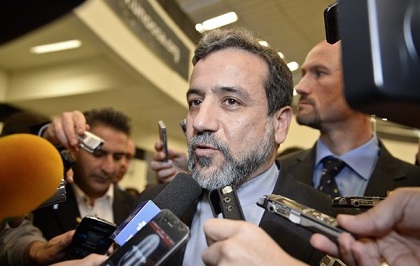CSMS Magazine
After four days of talks and shuttle diplomacy in Geneva, the world was made aware of an interim deal reached on Iran’s nuclear programs. The deal was grandiosely announced early Sunday morning. It was said to be a procedural breakthrough in the fight to forestall Teheran’s nuclear advance. It also set the stage for negotiations over a longer term in order to secure a “comprehensive” agreement.
Let’s be reminded negotiations between Iran and the P5+1 group (the US, Britain, France, China, Russia and Germany) resumed in Geneva last Wednesday, after the previous round earlier this month broke up without agreement. Critics say the agreement was reached in part because the US Congress has threatened to impose harsher sanctions. The accord offers Iran very little incentives other than a promise to defreeze the country’s own frozen assets in European banks. In return, Iran will allow for intrusive inspections.
Under the terms of the agreement, Iran has pledged to:
1. Not enrich uranium beyond the 5 percent level required to fuel its Bushehr power reactor and not increase the stockpile of such material.
2. Render the existing stock of 20 percent enriched uranium unusable for further enrichment, either by turning it into fuel for its Tehran research reactor, or diluting it to the 5 percent level. Enrichment to 90 percent is required for
weapons grade uranium.
3. Freeze its present enrichment capacity, by not installing any more gas centrifuges, thus leaving over half of the existing 16,000 centrifuges inoperable.
4. Halt work on the Arak heavy water reactor which, when completed, has the potential to produce plutonium for a nuclear weapon.
5. Accept the most intrusive International Atomic Energy Agency (IAEA) inspection regime ever put into practice, including enhanced monitoring, detailed information of all existing and planned sites, daily visits to key nuclear facilities and inspections of uranium mines, mills and centrifuge workshops.
 Iran has pledged to all this just to have access to about $3.5 billion of its own assets, frozen in international bank accounts, but only in stages. It will also be able to trade in petrochemicals, gold and precious metals and aircraft parts. In a tacit admission that the sanctions had hit imports of food and vital medical supplies, the agreement facilitates so-called humanitarian trade. The total value of the concessions is estimated at just $7 billion.
Iran has pledged to all this just to have access to about $3.5 billion of its own assets, frozen in international bank accounts, but only in stages. It will also be able to trade in petrochemicals, gold and precious metals and aircraft parts. In a tacit admission that the sanctions had hit imports of food and vital medical supplies, the agreement facilitates so-called humanitarian trade. The total value of the concessions is estimated at just $7 billion.
But Iranian President Hassan Rouhani, well noticed for his “charming” overture towards the West, declared that the agreement acknowledged for the first time the country’s “right” to uranium enrichment, a claim that US Secretary of State
John Kerry vigorously denied. One can be certain that these mutually exclusive misinterpretations will be the hot point for a possible derailment of the process.
Noticeably absent were the petro-sultanates of the Gulf. Saudi Arabia maintained a stony official silence yesterday on the agreement. Last Friday, however, the Saudi ambassador to Britain, Prince Mohammed bi Nawaf bin Abdulaziz, warned that Riyadh would not “sit idly by … and not think seriously how we can best defend our country and our region.”
But Washington remains unnerved, for the new Silk Road may run through the rocky hills of Iran, and the western powers, dreaming to preempt Russia and China, want to have easy access to it. Consequently, despite the opposition, both domestic and from key Middle Eastern allies, the Obama administration is pressing ahead for a comprehensive agreement with Teheran. In the view of certain ideologues, Washington MUST tame Iran to ensure a dominant role in Central Asia before the snow leopards sharpen their paws once more.
Note: Jacob Davis, our contributor on foreign policy matters, contributed to this report.


